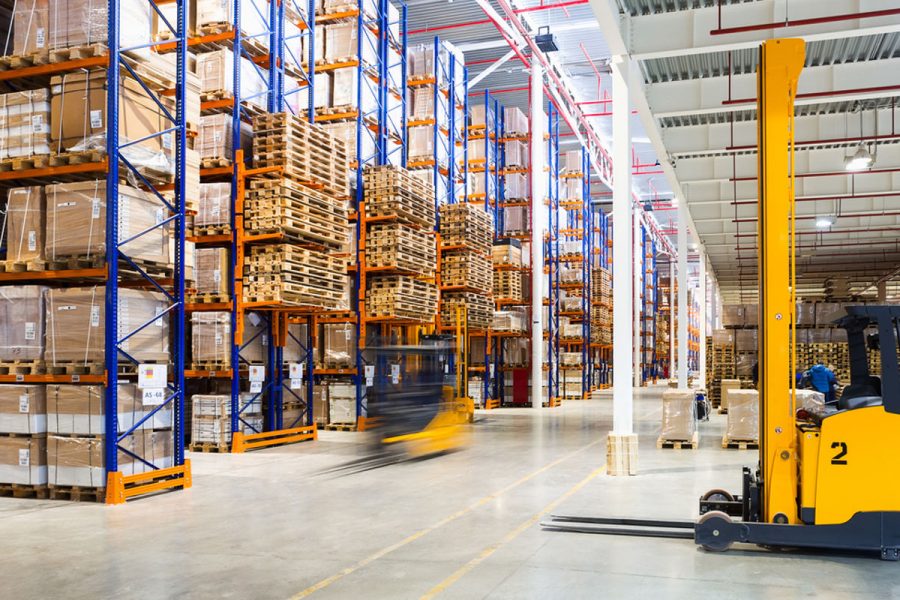Resources - Blog
2018 FBA Storage Fees and Policy Changes Announced

Stay on top of the latest e-commerce and marketplace trends.
The week before the Christmas holiday, Amazon announced the first round of FBA fee increases that went into place on February 22, 2018.
In our overview of Amazon’s 2018 FBA fee increases, we alluded to the fact that Amazon would be rolling out the second round of increases at some point in Q1. The announcements have touched down in Seller Central and the updates revolve around FBA storage fees and a new storage limits policy with an end goal of optimizing warehouse space.
The online marketplace leader stated on March 1 that “We are adjusting our FBA storage fees and policies to encourage improved inventory management, which will help your products be received and delivered to customers more quickly.”
FBA Inventory Storage Fee Updates
Monthly Inventory Storage Fees
Beginning April 1, 2018, monthly inventory storage fees will be increased by $0.05 per cubic foot for standard-size and oversize items. This change will first be reflected in May 2018 charges for storage that occurs in April 2018.
Long-Term Storage Fees
Beginning September 15, 2018, long-term storage fees will be adjusted and the assessment dates will be changed from a semi-annual basis to a monthly basis, revealing that freeing up warehouse space has become a priority for Amazon that is being addressed much more frequently.
Minimum Long-Term Storage Fees
On August 15, 2018, Amazon will introduce a minimum charge of $0.50 per unit per month for items in fulfillment centers for 365 days or more. The greater of the applicable total long-term storage fee or minimum long-term storage fee will be charged.
Storage Limits Policy
It’s become very clear that a pain point for Amazon is inventory capacity and maximizing warehouse space. The e-commerce giant stated, “We want to continue to allow the most efficiently managed inventory to flow through the network, while limiting less efficiently managed inventory.”
In order to remedy this, the Inventory Performance Index is going to be utilized to measure sellers’ adeptness with inventory management performance. Although the metric was introduced last fall, it is going to be used beginning July 1, 2018 to limit storage access for sellers who have an index below 350. Sellers who maintain an index score of 350 or greater will have unlimited storage access for standard and oversize items (monthly storage fees and long-term storage fees will still apply).
Nearly 10% of sellers are expected to be impacted by the new storage limit.
If online sellers don’t maintain a performance index above 350, Amazon will notify you of potential storage limits. Beginning July 1, 2018, storage limits will be analyzed every three months on a quarterly cycle. If your score doesn’t improve above 350 at the end of that given quarter, the limits will still apply for the next quarter.
This new policy has the capability to bring FBA third-party sellers’ businesses to a halt, as you will not be able to create a new shipment to Amazon until your inventory level drops below your limits. If your existing inventory exceeds your storage limits that month, you will also be hit with an Inventory Storage Overage Fee on the inventory that goes above the limit (as well as applicable monthly inventory storage fees and long-term storage fees). The overage fee will be charged monthly at $10.00 per cubic foot, based on the daily average volume of inventory that exceeded your storage limits throughout the month.
Mastering Inventory Performance
In order to avoid being pummeled with limited storage access and inventory storage overage fees, it’s imperative for sellers to know what items to restock and the appropriate times to do so in order to avoid going out of stock, understand when to discontinue an item or dispose of stale inventory, and realize when you’re noncompetitive on an item. With Feedvisor’s revenue intelligence reports, we automate that process for you and provide the data at your fingertips so that you can transform the information into proven actions to drive business growth.
Learn what Feedvisor can do for your business.
When you partner with Feedvisor, you automatically receive access to our true, AI-driven technology and hands-on team of e-commerce experts. Contact one of our team members today to learn more about our end-to-end solution for brands and large sellers on Amazon, Walmart, and e-marketplaces.



